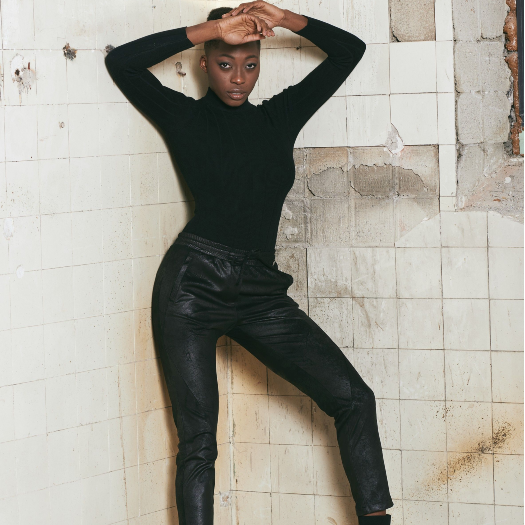Plastic is as omnipresent as the air we breathe in 21st-century living. All the products that aid and support us throughout our busy days oftentimes go hand in hand with the pollution of our planet. Female hygiene products are no exception to this. Tampons and sanitary pads alike are not only packaged in plastic but are oftentimes comprised to 90% of it as well, non-recyclable plastic that is. Annually this leads to a staggering amount of approximately 200 000 tons of waste, ending up in landfills, polluting our soil and groundwater. That’s 200 000 tons of waste that’s potentially avoidable.
… what about the chemicals?
It’s not even only about the plastic, female sanitary products also contain cotton which production requires a lot of water. Cotton is considered one of the ‘thirstiest crops’ on this planet. The yield of 1 kg of cotton requires 11.000 litres of water. On top of this, few products use organic quality, so the cotton in your tampon or sanitary pad contains pesticides (such as glyphosate) and herbicides.
Further still, the plastic also contains chemicals such as dioxin or chlorine. Even though very few traces of these chemicals are contained in the actual product, it’s not clear which effect they have on women’s health. The very high absorption capacity of the vaginal mucous membranes makes specialists weary. Even a very small amount of dioxin can be dangerous. Let’s not forget, many women use these products for 40 years. Dioxins break down very slowly in the body and new toxins keep arriving every month so that its degradation is hardly noticeable.
Formaldehyde is another chemical of which trace elements are found in tampons and pads. Used for killing germs and as a disinfectant, it also has a carcinogenic effect. In female products, this chemical is usually contained in the foil covering the individual tampon or pad. This is enough tough for the substance to be passed on. Although the permitted levels are not exceeded, it still needs to be looked at critically. The basis of calculation for what is tolerable comes from the use of paper tissues. They however touch the surface of the human body and only for a few seconds whereas sanitary products remain inside a woman for a prolonged period of time.
Another chemical that is potentially contained in menstruation products is phthalate. It is a softener and poses health risks such as difficulties with reproduction, negative influence on the development of a child in the mother’s womb, as well as premature menopause.
responsible bleeding?
Though all of this sounds rather gloomy there is no need to despair. Nowadays products of organic quality for the female cycle exist and tampons and pads can be obtained free of these chemicals. If your regular drug store doesn’t carry such brands, go and have a look at organic supermarkets or health stores. Many of these products can be bought online as well. In the past few years, startups have popped up in many countries, offering women safer and fairer products.
An even more environmentally friendly (and cheaper) alternative is to use products that don’t produce any waste at all. Examples are washable period underwear, reusable pads made from organic cotton or menstruation cups. The use of the latter might sound scary or daunting, tough just give it a try! You never know and the chances are high that you will be positively surprised.
So many women live incredibly busy lives, carrying multiple hats throughout their days. We are mothers, businesswomen, caregivers, wives, … Quality time to embrace and cultivate our feminine goddess energy oftentimes gets the short end of the stick. By prioritising our body and its well being, we are sending a powerful message! Let us embrace our menstruation and treat our beautiful and FAB female bodies to the best quality of products available. You will notice the difference!
The more our collective awareness grows the more women will refuse to use products that harm themselves and our planet. Green living does not oppose comfort nor progress. It simply means that solutions are come by minus the use of plastic.












